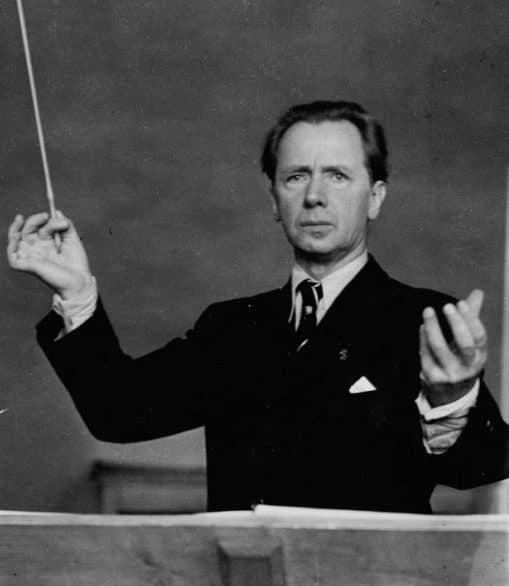Fascinating new light on Poland’s Nazi Philharmonic Orchestra
OrchestrasKrakow never had an orchestra, writes Jolanta Łada- Zielke, until Poland’s Nazi overlord Hans Frank created the Krakow Philharmonic, mostly for the benefit of SS genocidal murderers at the Auschwitz concentration camp nearby.
Jolanta argues that three German conductors of the orchestra were instrumental in saving Polish lives. One was Rudolf Hindemith, brother of the exiled German composer. Another, Hans Rohr (pictured), may have been secretly murdered by the SS for his attempts to create dialogue between Poles and Germans. Jolanta has talked to two surviving musicians.
The brilliant Polish harpist Helena Rostkowska-Smoczny had to move from Warsaw to Kraków. For her family, however, this paid off. Director Rohr brought her brother and stepson out of Auschwitz, and her husband returned from captivity. “But Helena Rostkowska and the other Polish soloists didn’t want their names to appear on posters ,” says Joanna Wnuk-Nazarowa. “They didn’t want to be suspected of voluntarily collaborating with the occupying forces, of being the beneficiaries of the regime.”
Read the full article here.






Comments